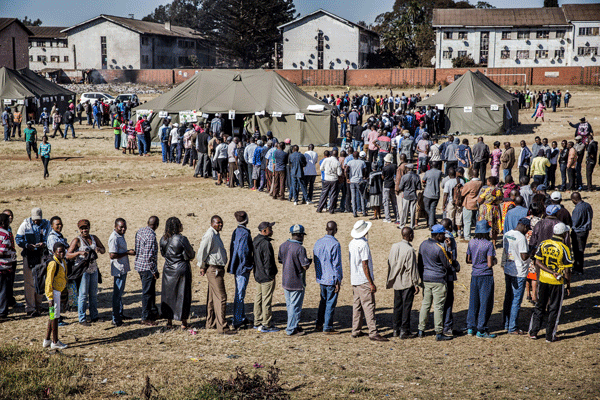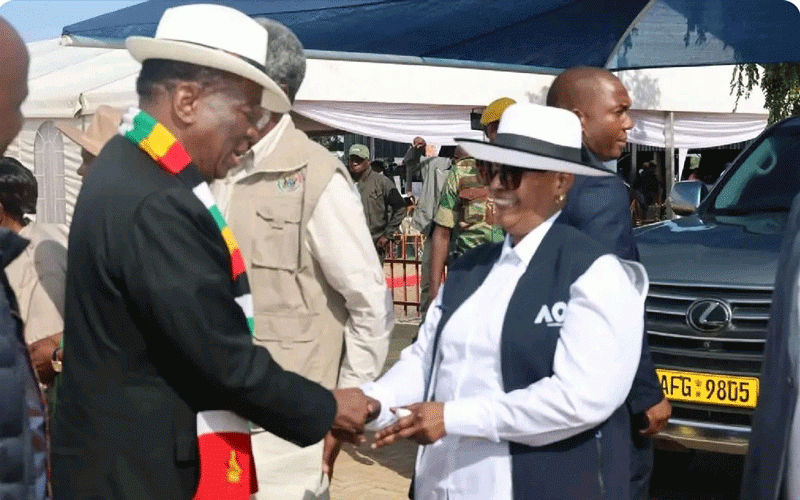
BY EVANS MATHANDA In the forthcoming harmonised election, the government and women’s groups should be on the lookout for fresh approaches to promote women’s participation in political leadership.
Achieving sustainable development and egalitarian societies requires women to participate as equals in politics.
While there has been some progress in the fight to end the underrepresentation of women in leadership roles, it has not gone far enough to benefit the fairer sex.
Despite a number of international, regional, and national laws that grant women the right to equal political participation and representation as citizens, gender disparities still exist in the access to political leadership positions across local governments, national parliaments, and executive institutions of power across the world.
Zimbabwe is no exception.
Political parties, which act as barriers to women’s entry to and competition in politics, are unfortunately a major impediment to the emancipation of women.
For instance, women make up 24% of national legislators and 21% of local government chiefs in Africa.
The percentage of female ministers serving in national cabinets across the continent is significantly lower than the global average of 20%.
- Chamisa under fire over US$120K donation
- Mavhunga puts DeMbare into Chibuku quarterfinals
- Pension funds bet on Cabora Bassa oilfields
- Councils defy govt fire tender directive
Keep Reading
In Zimbabwe, some women politicians have broken the proverbial glass ceiling only to be dismissed unceremoniously.
A case in point is that of Joice Mujuru, who served as vice-president of Zimbabwe under the administration of former president Robert Mugabe.
When her politics didn’t align with those that controlled the levers of power she was labelled, demonised and ostracised before she was cut loose.
Undoubtedly, the way she was ousted deflated many women that saw Mujuru as a role model and that took the battle to encourage women to run for leadership positions a step back.
It was probably with this in mind that women’s empowerment organisations, such as the Institute for Young Women’s Development, have been promoting discussions on women’s equal leadership engagement in politics and have emphasised both its inherent merits and practical explanations.
Their primary objectives are manifested in the numerous international accords, regional frameworks, and national legislation that have been influenced by feminist movements and mobilisations, as well as in assertions of democratic justice, equity, and human rights.
The March 26 by-elections highlighted stark gender gaps, with far fewer women than men succeeding in winning seats in the Parliament and local government.
There were 122 local authority seats and 28 seats in the National Assembly that remained unfilled, and the majority of the winners were male candidates.
Only 15.5% of the 122 local government seats and 21.4% of the National Assembly seats were won by female candidates, with men holding 78.6% of the seats.
While there are many competent, knowledgeable and ambitious women in Zimbabwe who could serve as leaders, they have to overcome many hurdles.
These limitations on women’s access to power are caused by contextual variables, which combine formal and informal laws, institutions, and other structural components in particular ways to shape opportunities and induce actors and behaviours.
Undocumented and informal standards weave together expectations from culture, religion, and social structures to place enormous limits on women’s political agency alongside official institutions.
These structural and cultural barriers, including those based on tradition, place significant restrictions on women’s access to resources and place high demands on their time as gender roles increase their responsibility for caring for family members at home.
As a result, these barriers create significant time and resource deficits that favour men and limit women’s chances of entering certain professions and winning elections.
Additionally, barriers to women’s full leadership engagement in state institutions continue to exist, including conscious and unconscious biases, discriminatory attitudes and customs, and movement restrictions brought on by threats of (political) violence.
Evidence of several successful techniques for expanding women’s political engagement across the nation can be found in records of previous and current actions.
In order to promote gender equality in political leadership, especially in the upcoming year, there must be new strategies to empower women’s participation in politics.
The restructuring of formal political institutions must begin with constitutional changes, legislative changes, and specific affirmative action initiatives, such as, but not limited to sex quotas, reservations, and party mandates when accompanied by proper safeguards.
Political parties need to undergo significant changes because they are essential to women’s political participation and competitiveness.
Women’s access to appointed and elected posts in government is directly impacted by the creation or the absence of a level playing field.
Women leaders are given the knowledge and skills necessary for success through capacity-building initiatives inside established women’s parliamentary caucuses.
Meaningful representation of women in leadership positions, or the perception of such representation, strengthens the effects of role modelling and satisfies voters’ demands for performance accountability, which raises public support for women in political leadership and their favourable attitudes toward it.
Interventions that encourage social mobilisation and group action alter the character of the state and create more room for women’s inclusion.
While some of these changes may be progressive, others, such as civil society mobilisations based on race and religion, may further a conservative agenda.
In order to prevent these coalitions and movements from being used to advance a variety of agendas that cover up covert anti-gender ideas, such as traditional ideas of women’s subjecthood that restrict their opportunities for political leadership, policy entrepreneurs and implementers should be vigilant.
Creating a supportive and gender-inclusive culture is a crucial factor in resolving the conflict between the rise of women in leadership roles and the persistence of sexist beliefs.
Women’s experiences as candidates for and office holders in politics have been impacted by gender norms and practices.
Norms also influence the leadership experiences of women who are elected, including how they are viewed and treated by the general public and by other political actors.
Informal laws reflect social inequalities, which call for more fundamental structural reorganisation.
Interventions that seek to shift these norms have the potential to spur transformation.
Exposure to female leadership over time can also change social standards.
While societal views and norms shift gradually over a lengthy period of time, interventions aimed at regressive and traditional gender norms have been shown to advance hospitable and gender-inclusive cultures.
Political change and social transformation have a complicated relationship.
Political reform may not be possible without a social change in how men view women, but social change is necessary for political change to occur.
Therefore, achieving social change can also ensure political reform, including equal political participation for women in all formal state institutions.
- Evans Mathanda is a journalist and development practitioner who writes in his capacity. For feedback email: [email protected] or call 0719770038 and Twitter @EvansMathanda19










